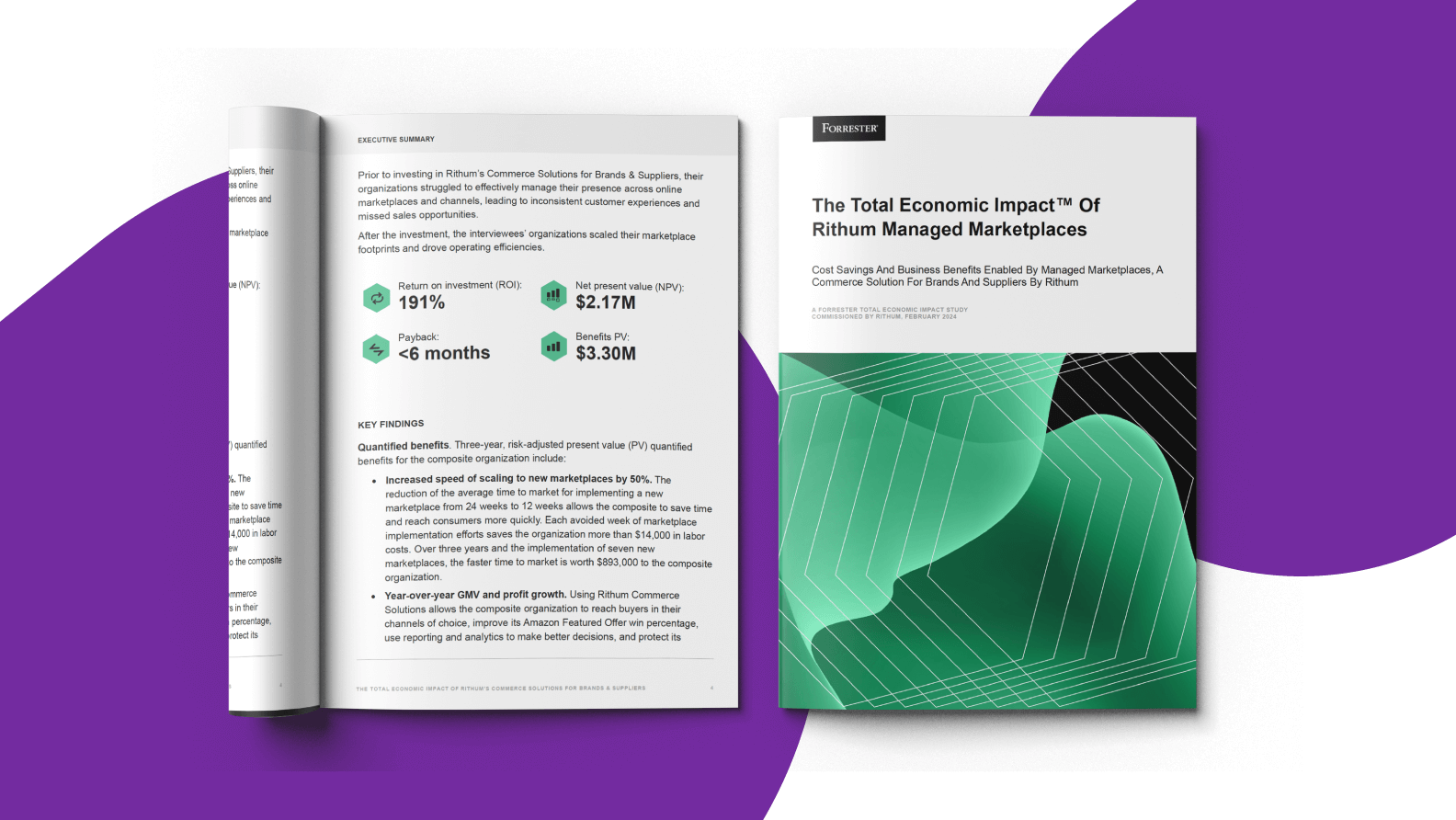The benefits of expanding into marketplaces are significant. However, attempting to do so in-house can be cost prohibitive. Brands needed a single platform allowing them to expand to new markets and help them effectively manage their growing omnichannel presences. Four brands needed integrations with marketplace partners to be as seamless as possible and to be quickly launchable, according to “The Total Economic Impact of Rithum Managed Marketplaces” study, published in February 2024.
Rithum allows organization to improve speed to market by 50%
In the study, Forrester combined the results into a single composite organization. It is a high-volume brand with $2.5 billion in companywide revenues and expanding marketplace business. These organizations needed to manage the expansion without adding additional employees. The VP of omnichannel at a fashion retailer said:
“We had a roadmap to get to the first $100 million in total sales for [e-commerce] and then to eventually grow our global footprint to roughly be about 35% [of revenue]. And what we realized in doing so was that we needed to find efficiencies of scale. We realized it was not realistic to manage [marketplaces] 100% in-house because of cost, so we looked for vendor partners that can hire and staff up more quickly and that can scale with our business. [Rithum] helps us reach those goals.”
The three-year, risk-adjusted present value (PV) quantified benefits for the composite organization include increased speed of scaling to new marketplaces by 50%.
Rithum reduced the average time to market for implementing a new marketplace from 24 weeks to 12 weeks. This allowed the organization to save more than $14,000 in labor costs. Over three years the composite organization implemented seven marketplaces. The faster time to market is worth $893,000.
How to manage marketplaces efficiently
Expanding into global marketplaces such as Amazon, eBay, Walmart, and others requires the ability to manage and update product catalogs. Manual control takes time. By automating the process, brands can manage and update product listings, inventories, and order management systems in real-time across multiple platforms.
The organization no longer needed to manually update catalogs, share order status updates, update product feeds, and conduct inventory management. The advantages of scaling faster led to increased efficiency of up to 80% for the marketplace team. It also offset the costs associated with nearly six additional employees. Over three years, these efficiency improvements are worth $562,000 to the composite organization.
“Today’s market requires speed and efficiency – it’s non–negotiable,” said Pete Elmgren, Chief Revenue Officer at Rithum. “That’s where Rithum steps in. Our end-to-end commerce solutions are built to give businesses more agility and connect to new opportunities faster.”
Outsourcing allows brands to focus on strategy
Investing in Rithum resulted in efficiencies of scale including valuable analytics and insights that would otherwise need to be built in-house. By outsourcing these tasks to Rithum, the interviewees are can “focus on more strategy versus the operational aspects of running marketplaces,” according to the Vice President of Omnichannel at a fashion retailer, and one of the study’s participants.
Read the full study and estimate the potential impact for your business here.
Learn how to calculate your brand’s ROI using Forrester’s interactive calculator. Watch the instructional video here.


